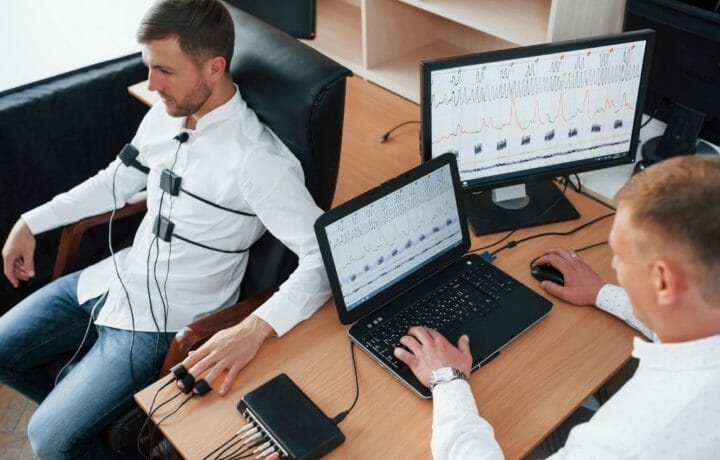I was doing some research on ways to ethically hack a polygraph machine (especially those that are part of a legacy system) and this question occurred to me: “Why are we using polygraphs for job interviews when they have been attacked time and time again for inaccuracies and, if we must use them, can’t there be something that gives agencies a second point of data to rely on?”
If you were a little bit iffy about polygraphs being a gate that either opens or closes on the path to a security clearance job, you are in good company. Dr. Amy Zegart, in her fantastic book Spies, Lies and Algorithms, notes that studies have shown that not only many “truth tellers” are rejected as liars, but as history has shown, some that are determined to be “truth tellers” end up in history annals as some of this country’s worst spies.
PBS recently released a documentary titled “Lie Detector” that focuses a lot on the criminal justice system but also raises questions about the use of these machines as part of conducting business. Obviously the psychological advantage of a polygraph is that the fear of being caught in a lie has caused a fair amount of people to “fess” up to wrongs they may have otherwise gotten away with. Using the instrument with that goal in mind is completely legal. However, remember a polygraph doesn’t actually show acts of lying, but instead anxieties which may tend to indicate deception
How long will government agencies continue using the polygraphs? In recent years the policy has been updated to ensure that a negative polygraph alone can’t be the cause of a security clearance denial or revocation, but even with that policy change, there is no denying the employment ramifications an inconclusive or failed polygraph test can have.
While I doubt the polygraph will go away as an intelligence community employment screener, technologies such as Converus EyeDetect are making a strong pitch to get into the federal government tool box using algorithms to determine cognitive load based on involuntary eye movements. Critics have disputed this method as not being able to differentiate between cognitive load from stress vs cognitive load from lying.
Reading the scientific studies, ironically, caused my cognitive load to short circuit.
While the greatest invention to detect lies may be on the horizon somewhere undetermined, it is immaterial at this point until someone changes the law. Both DoD Directive 5210.91 and ODNI Security Executive Agency Directive 2 only allow polygraphs in support of Personnel Security Determinations of U.S. persons. Until the law is changed, lobbyists in the technology of human factors based industries will have to appeal to the sentiment of the Department of Defense National Center of Credibility Assessment, a think tank and education center who in turn must determine if new or different methods of lie detection be considered.
That, however, is just one part of the hurdle. Convincing policymakers at government agencies to test personnel credibility differently than it has been done for decades could be a bigger hill to climb.


